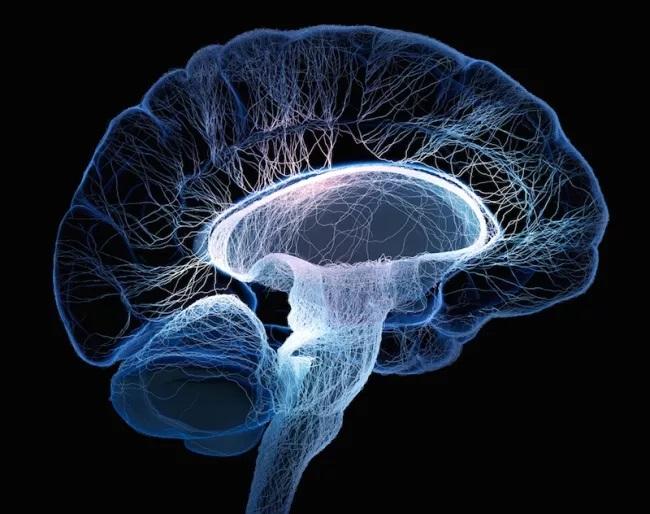How many megabytes of data can the human mind hold?

The human brain may be able to hold as much information in its memory as is contained on the entire Internet, new research suggests.Researchers discovered that, unlike a classical computer that codes information as 0s and 1s, a brain cell uses 26 different ways to code its "bits." A lot more than two. Most computational neuroscientists tend to estimate human storage capacity somewhere between 10 terabytes and 100 terabytes, though the full spectrum of guesses ranges from 1 terabyte to 2.5 petabytes. (One terabyte is equal to about 1,000 gigabytes or about 1 million megabytes; a petabyte is about 1,000 terabytes.)
"This is a real bombshell in the field of neuroscience," Terry Sejnowski, a biologist at the Salk Institute in La Jolla, California, said in a statement. "Our new measurements of the brain’s memory capacity increase conservative estimates by a factor of 10."
The math behind these estimates is fairly simple. The human brain contains roughly 100 billion neurons. Each of these neurons seems capable of making around 1,000 connections, representing about 1,000 potential synapses, which largely do the work of data storage. Multiply each of these 100 billion neurons by the approximately 1,000 connections it can make, and you get 100 trillion data points, or about 100 terabytes of information.
What's more, the human brain can store this mind-boggling amount of information while sipping just enough power to run a dim light bulb.By contrast, a computer with the same memory and processing power would require 1 gigawatt of power, or "basically a whole nuclear power station to run one computer that does what our 'computer' does with 20 watts," said study co-author Tom Bartol, a neuroscientist at the Salk Institute.
Even if we accept that the storage capacity of the brain is between 10 and 100 terabytes, estimating how much of that space is “used space” versus “free space” is very difficult—the brain is simply much more complex than an external hard drive. Not only do some parts seem to be involved in many different memories at once, but this stored data is often being corrupted and even lost.
So how many megahertz does the brain run at? It may be best to say that the brain is a much more powerful machine made up of much slower processors. Each neuron seems to have a “clock speed” on the order of kilohertz, which are a million times slower than gigahertz. (A smartphone’s processor speed is around 1 gigahertz.) For this reason, computers are often much faster at completing specialized tasks, even though they can’t replicate all the varied functions of the human brain.
While futurists like Ray Kurzweil cite Moore’s law—the tendency of computers to become twice as powerful about every two years—to predict that we will be able to build computers more powerful than the human brain within the next two decades, it’s not clear that such a computer could be marketable. The brain is remarkably energy-efficient, running on about 12 watts—the electricity it takes to light some high-efficiency light bulbs. It would require so much energy to run a computer as powerful as the human brain—perhaps as much as “a gigawatt of power, the amount currently consumed by all of Washington, D.C.” —that it may be impractical.